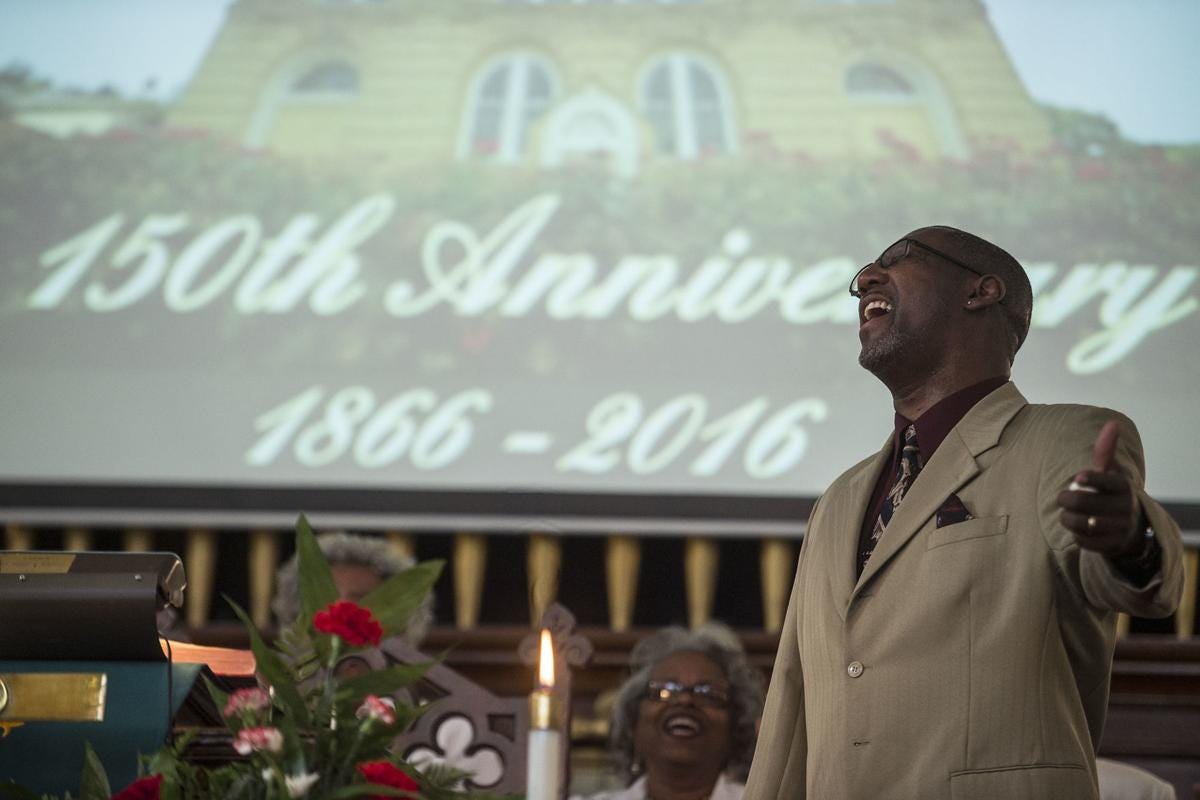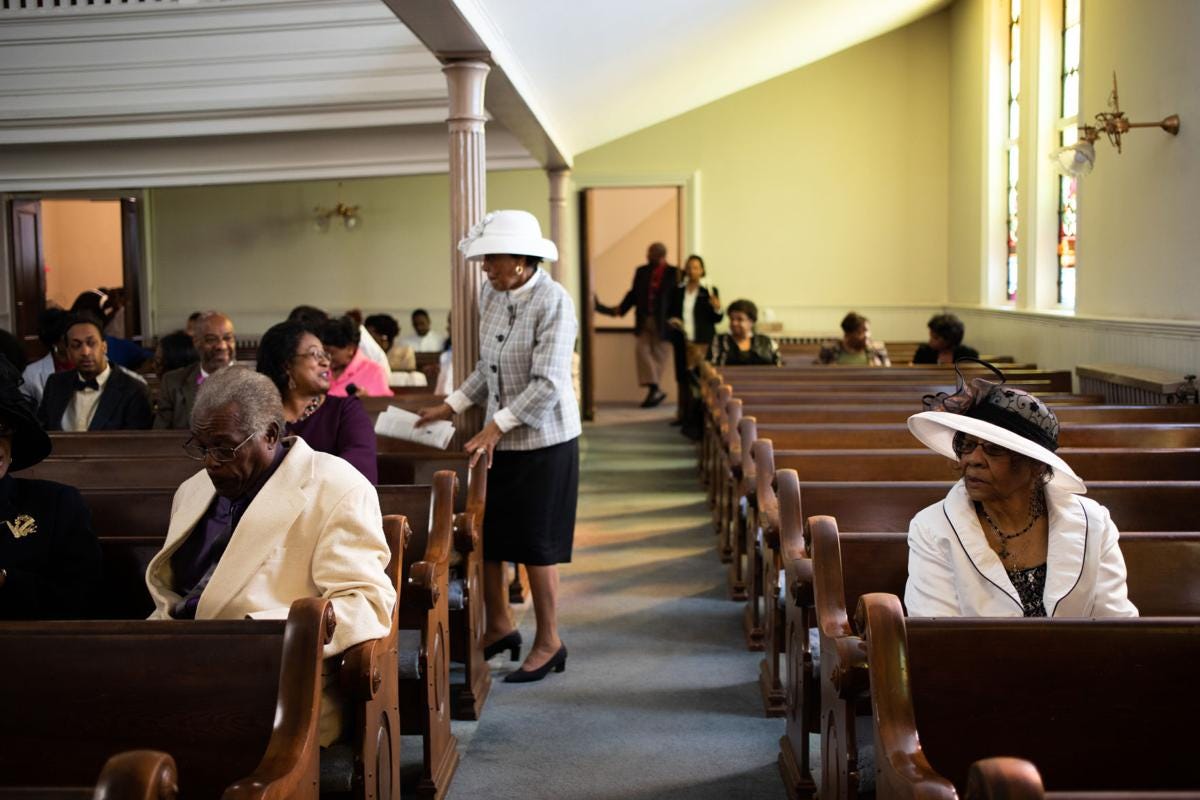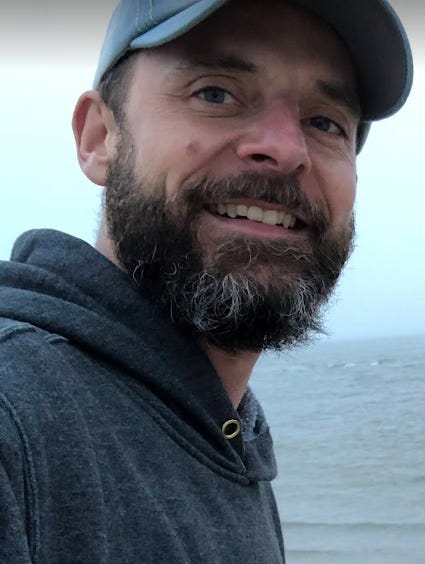Day 15: Freedom, White Supremacy, and Jesus
I celebrate a freedom that supersedes any freedom granted (or not) by the State. It’s a freedom of the soul.
“I just want you to share the wound with us. Because it’s heavy, and we’ve had to carry it for a long time.”1
There are two types of freedom. On one level, we are free under our country’s democracy, and we celebrate this on July Fourth. I don’t take that for granted. I know that many people sacrificed their lives for this freedom. I have friends serving today and in the past who dedicate their lives to this freedom.
And though, as this Bridge crossing testifies, our country’s testimony of freedom is stained by hypocrisy, we continue to strive that all can be free. Fannie Lou Hamer’s famous words, "Nobody’s free until everybody’s free" underscore Dr. Martin Luther King’s idea that “We are caught in an inescapable network of mutuality," and remind us that freedom is not independent (see Envisioning a Bridge of Lament).
But on another level, I celebrate a freedom that supersedes that granted (or not) by State. It’s a freedom of the soul.

Crossing this Bridge has been hard. I have forced myself to wrestle with enslavement, white supremacy, the Lost Cause myth, Jim Crow, redlining, the racial wealth gap, and more as a member of society that has benefited from these cultural travesties. I couldn’t have crossed without the love shown and joy demonstrated by Black people in the community. They show me that God is so much bigger than the darkness of America’s history.
A couple days ago, during our White Rock Cemetery service day (Read Day 10: Tending Life in Death), trustee Annabelle Tweedy welcomed me to attend the Sunday church service at Jackson Street United Methodist, a historic Black church still active in our city. But instead, in an unplanned adjustment, I found myself in church yesterday morning at Court Street Baptist, another of the historic Black churches in Lynchburg.

Pastor Ernest Scott preached on the eighth chapter of Romans,
“For I am persuaded, that neither death, nor life, nor angels, nor principalities, nor powers, nor things present, nor things to come, Nor height, nor depth, nor any other creature, shall be able to separate us from the love of God, which is in Christ Jesus our Lord.”
In Lynchburg’s churches of the early 1800’s, white church members worshiped alongside free and enslaved laborers. But as the city's prosperity increased, so grew the Black population. By the 1840’s, enslaved people constituted nearly 40% of Lynchburg's population.
During this time, First Baptist Church was also outgrowing its meeting house. The building's gallery, built just a few years prior for the Black congregation, did not solve the problem. Local historians have pointed out that racial tensions were apparent when First Baptist voted to require blacks “to remain in the gallery after preaching until the white people shall have dispersed.”2 White members felt uncomfortable with the Black population's growing numbers in the city. In 1843, they allowed the Blacks to form their own congregation. Those individuals proceeded to constitute the African Baptist Church of Lynchburg - today Court Street Baptist Church.
One hundred and eighty years later, after local economics professor John Abel tells us how “[Lynchburg] neighborhoods that were redlined back in 1937 still struggle with property value . . . that are far lower . . . than those neighborhoods that received the highest grades” (see Day 13: What’s in a Neighborhood?), and after Black writers testify that “Our bodies are simply the clearest evidence that this country is the work of men,”3 and after in 2020 George Floyd is lynched, a Black preacher in Lynchburg spreads his arms out and relishes a freedom of the soul, “for I am persuaded…” – and his congregants welcome me with smiles and handshakes and words of “please return again.”
Jesus said, “If the Son sets you free, you are free indeed.”
In yesterday’s reading (Day 14: Rest from Lament), Rebecca Martin quoted a section of poetry from Harlem Renaissance poet Anne Spencer,
Most things are colorful things—
—the sky, earth, and sea.
Black men are most men;
but the white are free!
Spencer lays out an irony that white freedom is empty without the God-given earthly beauty that the Black body radiates. King’s words come back to us, “We are caught in an inescapable network of mutuality.” As Jeremiah Forshey told us on Day 4: Fort Early, “White supremacy is still running the same empty train into our city again and again, pretending to a strength it does not have, asking us to cheer to maintain the ruse.”
For me, to lay out the words “white supremacy” before a reading audience is to let go of my empty pride as a white man, to let go of a comfortable white identity and give myself over to nothing but Christ. To do nothing but rest in the arms of a loving God who has me and all people. God removes our baggage and says,
“Let me take that. You rest and be with me for a while. Just sit with me. Let me fill you with my presence. Let me change your heart. Let me love you. Let me know you. Let me move you.”
. . . And in this I am free. With this freedom may I love others.
“Carry each other’s burdens and in this way you will fulfill the law of Christ.” Galatians 6:2
Questions or feedback? We’d love to hear from you. Email bridgeoflament@gmail.com.

Spoken to a white woman by the Black daughter of Melvin and Betty Mosley, featured by Kelley, Melissa Morgan in “Living Reconciliation,” Christianity Today, July/August 2023.
Delaney, Ted and Rhodes, Phillip Wayne, ‘Free Blacks of Lynchburg, Virginia, 1805-1865’, Old City Cemetery, 2001, Pg 47.
Stewart, Dante, ‘Shoutin’ in the Fire’, Convergent Books, 2021, Pg 235, alluding to Ta-Nehisi Coates’s words, “It is a profound question because America understands itself as God’s handiwork, but the black body is the clearest evidence that America is the work of men,” from Coates’s ‘Between the World and Me.’




